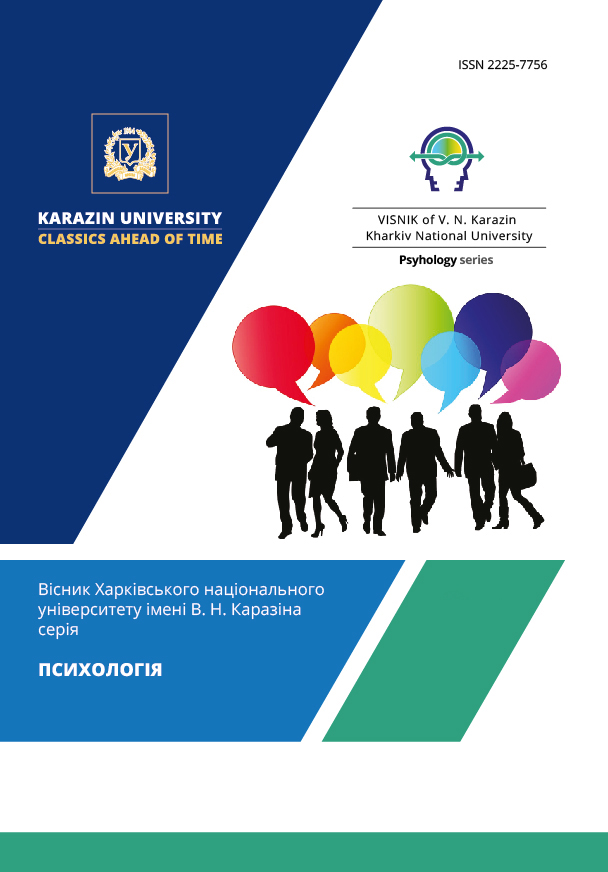Conflict Competence of Pharmacy Students
Abstract
Conflict competence is an integral component of the professional competence of pharmacists and an important characteristic of them as specialists. However, nowadays an insufficient attention is paid to the study of the pharmacists’ conflict competence specifics, and the developed general recommendations for the prevention and regulation of conflict situations do not always take into account the specific conditions that have developed in the pharmaceutical market. The aim of the work is to study the specifics of conflict competence of pharmaceutical students at the stage of professional training in order to develop recommendations for its development. In the empirical study, it was found that the most pronounced personality trait of the tested pharmaceutical students is "Conscientiousness", they are characterized by high motivation and persistence in their attitude to goals and actions. The level of readiness for negotiations and conflict resolution, as well as the level of empathy, is average in the majority of respondents. Pharmacy students, unlike psychology students, have a lower degree of extroversion, empathy for children, for characters in works of art, and for strangers or unfamiliar people, and in a conflict situation, they often resort to compromise. With the help of correlation analysis, the relationship between personality traits and behavior strategies in conflict was revealed. Subjects with the personality trait "Friendliness" in a conflict situation choose the adaptation strategy and avoid rivalry, with the personality trait "Conscientiousness" in the conflict choose the response strategy "Compromise". Ways to optimize the development of conflict competence at the stage of professional training are revealed.
Downloads
References
Dzyak L. A., Yekhalov V. V., Sirko A. G. Communicative and conflict competence of medical interns in the specialty "Nervous diseases. Actual problems of modern medicine: Bulletin of the Ukrainian Medical Stomatological Academy. 2021. 21(2). 182-185. https://doi.org/10.31718/2077-1096.21.2.182 [inUkrainian]
Friesen, P., Caplan, A. L., Miller, J. E. (2019). Managing conflicts of interest in pharmacy and therapeutics committees: A proposal for multicentre formulary development. Journal of Clinical Pharmacy and Therapeutics, 1, 1–7. https://doi.org/10.1111/jcpt.13067
Haumschild, R. J., Hertig, J. B., Weber, R. J. (2015). Managing conflict: a guide for the pharmacy manager. Hospital Pharmacy, 50(6), 543–549. https://doi.org/10.1310/hpj5006-543
Kendrick, J., Beauchesne, A., Lee, Y. V. (2021). Conflict between Pharmacy Preceptors and Pharmacy Learners in Experiential Education. Canadian Journal of Hospital Pharmacy, 74 (1), 36-42. https://doi.org/10.4212/cjhp.v74i1.3044
Klimanska, M. B., Galetska, I. I. (2019). Ukrainain adaptation of the short five factor personality questionnaire TIPI (TIPI-ukr). PSYCHOLOGICAL JOURNAL, (5), 57-74. https://doi.org/10.31108/1.2019.5.9 [inUkrainian]
Kundu, V. (2020). Conflict Competence: An Exploration of its importance and skills. International Journal of Peace, Education and Development, 8(1), 01-05. https://doi.org/10.30954/2454-9525.01.2020.1
Lemak, M. V., Petryshche, V. Yu. (2012). Psychologist for work. Diagnostic methods: collection. Uzhhorod. [inUkrainian]
Matviychuk, T. F. (2018). Conflictology. Manual. Lviv. [inUkrainian]
Sahaidak-Nikitiuk, R., Harkusha, M., Barnatovych, S. (2019). Scientific and practical approaches to form the list of social-psychological characteristics for pharmacy specialist. EUREKA: Health Sciences, 1, 39–46. https://doi.org/10.21303/2504-5679.2019.00871
Sahaidak-Nikitiuk, R., Harkusha, M., Demchenko, N. (2018). Research of socio-psychological characteristics of pharmacy specialists. Scientific Journal «Science Rise: Pharmaceutical Science», 6(16). 35-40. https://doi.org/10.15587/2519-4852.2018.153381
Shmatenko, O. P., Goncharenko, I. F. (2014). Psychology and deontology in pharmacy: teaching. manual. Kyiv. [inUkrainian]
Tessal, H. (2019). Associations among student conflict management style and attitudes toward empathy. Currents in pharmacy teaching&learning, (11). 25-32. https://doi.org/10.1016/j.cptl.2018.09.019
Voshkolup, G. Yu. (2016). Conflictological competenceas a component of professional competence of future specialists. Bulletin of the Dnipropetrovsk University named after Alfred Nobel. Series: Pedagogy and Psychology, (1). 184–189. Retrieved from https://pedpsy.duan.edu.ua/images/PDF/2016/1/32.pdf [inUkrainian]
Voytovych M. V. Development of conflict competence in medical psychologist students at the stage of professional adaptation. Actual problems of psychology. 2019. 12. 23-31. https://lib.iitta.gov.ua/1851 [inUkrainian]
Zavatska, N. E., Smirnova, O. O., Akhtyrska, Yu. I. (2019). Communicative and conflictological competence of the individual in the context of modern paradigms. Theoretical and applied problems of psychology, (2). 147-159. Retrieved from http://tpppjournal.com.ua/n49y2k19a12.html [inUkrainian]




